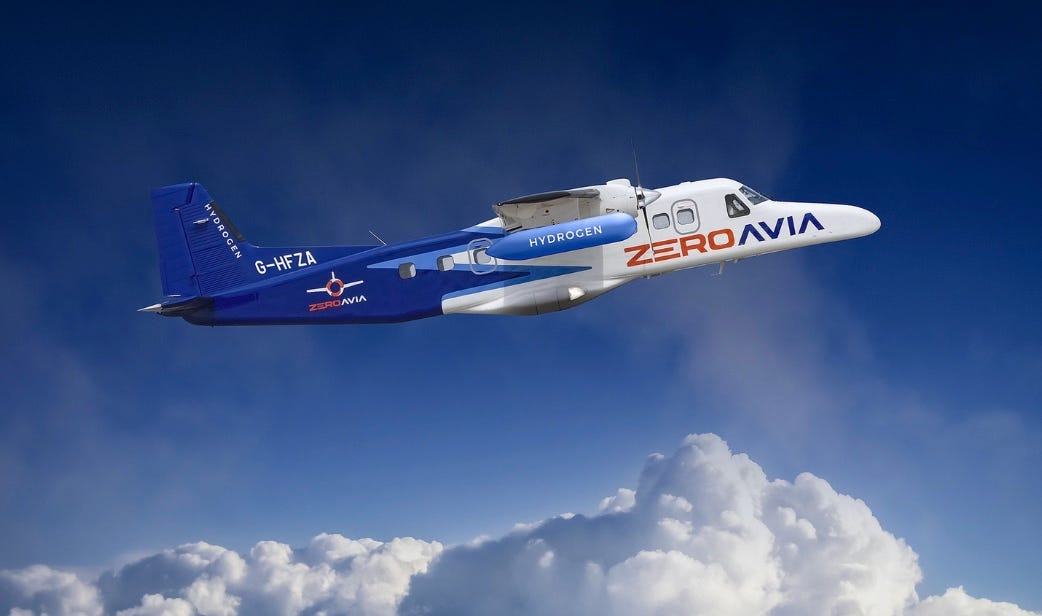From England's green fields, a green hydrogen-powered plane is set for takeoff
Technology set to be tested that could revolutionize aircraft industry
(A native of England, Matthew Diebel is a veteran journalist who has worked at NBC News, Time, USA Today and News Corp., among other organizations. Having spent his childhood next to one of the world's fastest bodies of water, he is particularly interested in tidal energy.)
Want to feel guilty, frequent flyers? A 2020 study from the Munich University of Applied Sciences found that just 1% of the world’s population — the ones who fly often and internationally — are responsible for about 1.25% of global carbon emissions.
And that just from their flying activities.
There’s no getting away from it: aircraft are heavily polluting, accounting for about 2.5% of greenhouse gas output. And so far, most talk has been about so-called sustainable aviation fuel (SAF), which is made from waste and burns more cleanly than conventional fossil fuels, but is still heavily polluting.
But there are non-emitting planes on the horizon. Literally. Last month, for instance, we reported on battery-powered aircraft, some of which have already taken to the air.
And now they are to be joined by a new upstart: a hydrogen-powered aircraft. It comes from startup ZeroAvia, which is planning to flight-test a 19-seat aircraft equipped with hydrogen fuel cells in mid-July at a small airport in the south of England, reports Canary Media, with a second plane being tested later near ZeroAvia’s headquarters in Hollister, Calif.
The two dual-engine aircraft will use fuel cells — which convert hydrogen created by renewable energy into electricity to drive propellers — on one side, while the other side, for safety reasons, will use a conventional engine.
“Airlines are really interested in this because they’re under more and more pressure from governments but also from the flying public,” Val Miftakhov, CEO and founder of ZeroAvia, told Canary Media. And indeed they are, because ZeroAvia has raised $115 million from United Airlines (UAL), Alaska Airlines (ALK) and British Airways (IAG) as well as Amazon (AMZN), Shell (SHEL) and other investors. Miftakhov claims the startup is on track to launch a small hydrogen aircraft into commercial service by the end of 2024.
Next up? Jet engines using liquid hydrogen.

